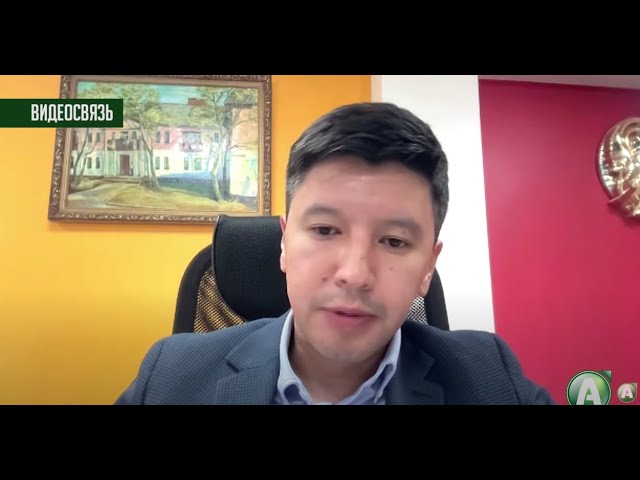Anar Baibolatova, the head of the Consumer Rights Protection Center for Online Microloans, is confident that a large number of self-employed people take microloans because they cannot and do not know how to legalize their income. Current regulatory requirements for banks do not take into account Kazakhstanis who do not make pension contributions. This includes a vast layer of self-employed individuals, such as taxi drivers, salespeople, housewives who cook to order, and rural residents.
"The audience of online MFOs in Almaty and Astana is only 27%. The rest (over 70%) is evenly distributed across the country. Most often, clients of this segment live in small settlements. It is worth noting that in the overall credit portfolio of financial organizations in the country, online loans until payday account for only 1%, so it is not possible to say that online microloans are to blame for indebtedness," Anar Baibolatova noted, speaking at a press conference at the Kazakhstan Press Club.
Representatives of the TALAP research center share a similar opinion. According to Askar Kysykov, the director of this center, specialists currently working in the MFO segment fear that eventually all rhetoric about indebtedness will lead to the regulator simply banning online MFOs.
"Although the problem, if you look at the number of people 'in arrears', is systemic. The main creditor in Kazakhstan is second-tier banks (STBs). Their installments account for half of all consumer loans. The number of borrowers is STBs, the amount of loans is STBs. Online MFOs only have 1% of the credit portfolio. There, the amounts are small and the loans are short," said Askar Kysykov.
Regulation exists
As noted at the event, over the last four years, the reward rate for online MFOs has been reduced five times, and now consumer protection measures for financial services are more than adequate. In particular, measures such as calculating the debt burden ratio (DBR), banning new loans for delinquencies over 60 days, and commission fees have been introduced. In case of delinquency, a repayment overpayment limit of 50% has been set. In 2021, additional measures were introduced: biometric identification, a commitment to out-of-court settlement of situations with debtors. The maximum reward rate was reduced from 30% to 15-20%. The last reduction came at the end of last year.
"We are often compared to banks, but you cannot apply bank approaches to microfinance organizations. MFOs issue loans with a one-time payment, risking their own money. Banks issue loans using deposits and with a payment schedule. We issue loans for a maximum of 45 days, but provide clients with information like banks, indicating the annual effective rate. This does not reflect the real cost of the loan because our consumer does not take money for a year. The maximum amount of such a microloan is 184,000 tenge. On average, our clients take 70,000 tenge for three weeks," says Alexey Sidorov, chairman of the KazFinTech Association Board.
Experts are confident that tightening regulation of the sector will lead to its disappearance.
The problem is deeper and wider than it seems
Economist Aidarkhan Kusainov believes that the problem of closing online MFOs is much wider and could eventually lead to serious consequences.
"The demand for online loans is evenly distributed across the country. It concerns people who do not have pension contributions, who 'live paycheck to paycheck', and they cannot get a loan from banks. And they do not need large loans. Today, their needs are covered by online MFOs. Banks do not fill this niche, such clients are not of interest to them. Everyone says people can go to the unregulated market, to loan sharks or gangsters, but a person still needs to find a loan shark or gangster. Most likely, in this case, they will go to a 'mutual aid society' - cults. And you know how they operate. They will always sympathize, help with money, and listen, in return asking for loyalty and some services," Aidarkhan Kusainov notes.
When hasty decisions hurt the consumer
Rinat Mustafin, the head of the "Femida Kömek" Financial Rehabilitation and Bankruptcy Center, helps insolvent borrowers resolve debt problems through mediation and other official procedures. He is convinced that hasty decisions always turn against consumers of financial services.
"In Karaganda, the MFO 'Everest Finance' operated. It is unclear how the company obtained a license, who checked it. For a long time, no one noticed its activity. But after complaints from clients, ARPF conducted an inspection and revoked the MFO's license. Now, this company is suing former clients at a ratio of one to three. People borrowed 500,000 tenge, and now by court
decision, they are paying back more than 1.2 million tenge. Currently, thousands of borrowers are having money deducted from their salaries and pensions by a company that used to be an MFO and is now an ordinary LLP, not regulated by anyone and has a large portfolio," Rinat Mustafin shared from his practice.
Representative of the NCE "Atameken" Timur Zhantikin also believes that "a realistic and pragmatic economic assessment is needed, not simplified solutions that do not take into account long-term consequences and may lead to undesirable results in the economy and society."
"Studying the experience of neighboring countries that are part of the EAEU, we see that, for example, in Russia, the interest rate on MFO loans is 292% per annum. Considering the ongoing harmonization of legislation in the field of financial markets regulation in the EAEU, I believe this should be taken into account," Zhantikin notes.
He also reminded that President Kassym-Jomart Tokayev clearly expressed support for entrepreneurship, emphasizing its importance for economic growth and prosperity of the nation. However, the expert notes, the current policy towards the online micro-lending sector is at odds with these theses. In this connection, he proposes to reconsider approaches to regulation, to ensure protection and support for both business and consumers of financial services.
This text was translated with the help of the artificial intelligence ChatGPT
Author: Арина Медовских
Source: https://www.zakon.kz/finansy/6424507-chto-budet-s-rynkom-mikrozaymov-eksperty-predlagayut-peresmotret-podkhody-k-regulirovaniyu.html



